A 1 in 9,223,372,036,854,775,808 chance. Yes, that’s over 9 quintillion. Those are your chances for predicting a perfect men’s NCAA March Madness basketball tournament bracket. You have a better shot at winning the lottery twice. Yet each year, I’m fairly confident it will be my year. (It’s not, this year, by the way.)
But are we getting closer to being able to correctly predict a flawless bracket? With the help of Big Data, we just may be. This year, both Google and Bing have taken to attempting to correctly call the winners of the 2015 tournament, and each search engine is taking a unique route to do so.
As the “official” NCAA prediction partner, Bing is pulling from 10 years of raw historical data about the teams in the tournament, their win-loss ratios, as well as their home versus away statistics in an attempt to predict who will make their way through the Big Dance. In order to do so, Bing turned to Microsoft Principal Applied Science Manager Walter Sun to review and analyze the data. Using proprietary algorithms, Walter and his team at Microsoft were able to tune into key patterns that – during the course of the past 10 years – have contributed to the success or demise of participating teams.
And when the tournament entrants were announced a few weekends ago on “Selection Sunday,” Bing’s predictive bracket looked pretty good.
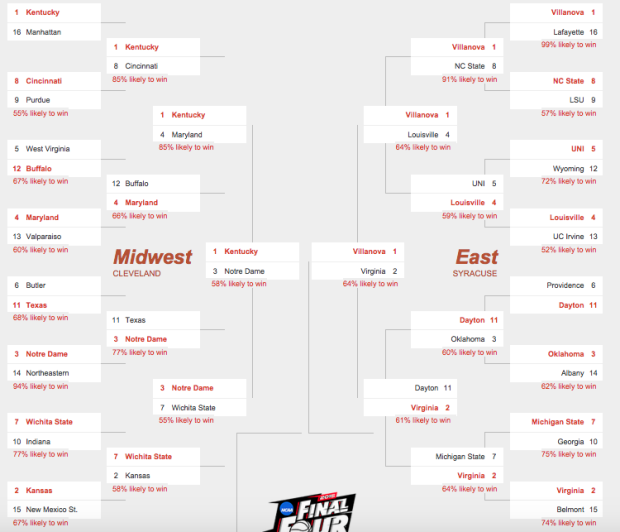
But as with most brackets, it didn’t take long before Bing’s was busted.
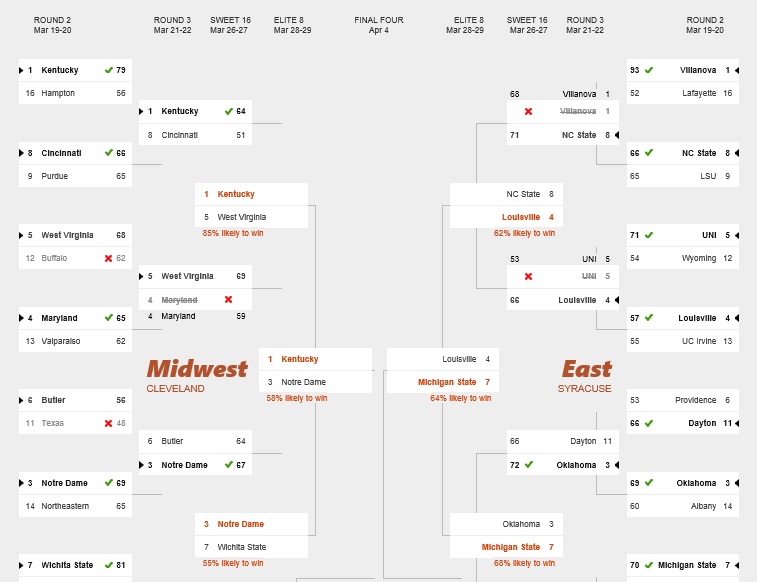
Not to be outdone, Google also took a stab at correctly predicting which teams would meet success during the tournament, analyzing consumer behavior via search engine and YouTube data. Google’s data was compiled using information only from the 2014-2015 NCAA men’s basketball regular season, and included searches on Google as well as views, comments, and likes on YouTube videos. Using their fan behavior model, Google’s official 2015 NCAA March Madness bracket looked like this when it was released:
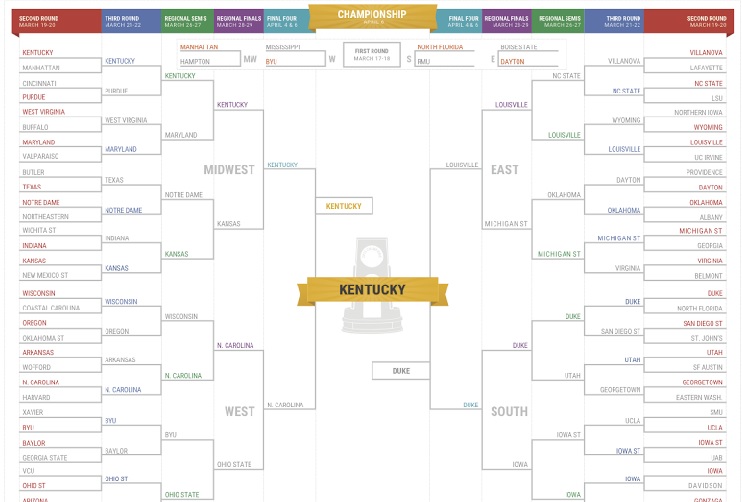
As you can see, Google hasn’t been 100 percent, either.
But while they were at it, Google analyzed some unique trends and searches related to the tournament, which we found interesting.
According to Google Consumer Surveys,
- Approximately 90 million people in the U.S. have filled out a bracket;
- During March and April 2014, half of all searches related to college basketball occurred via mobile devices, and 40% of searches related to brackets were on mobile.
- Approximately three in 10 college basketball fans prefer to watch online highlights in addition to the live game.
And of course, some fun infographics from Google Trends:
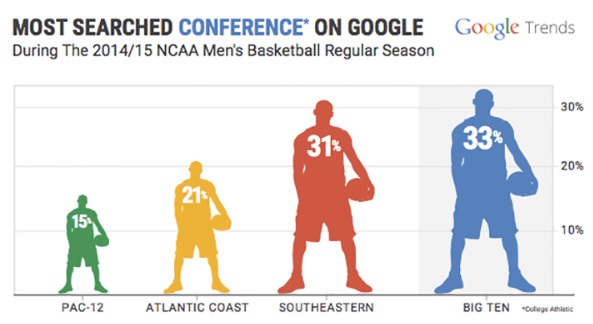
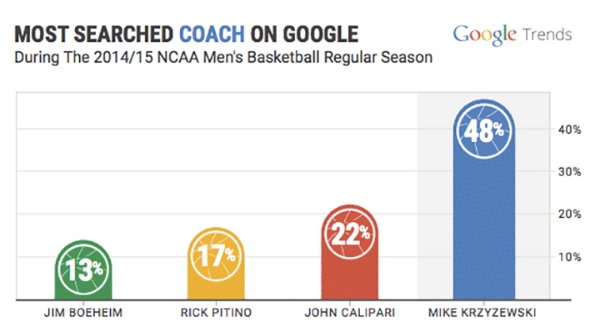
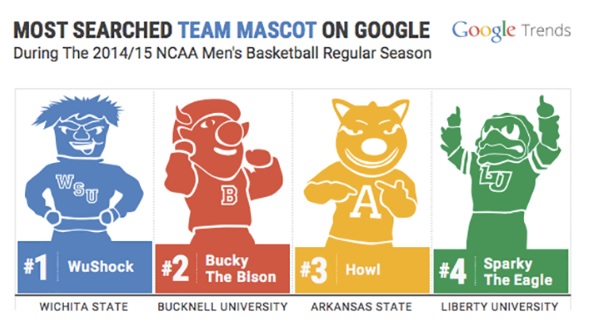
Perhaps guessing 1 in a 9.2 quintillion chance is even too lofty for predictive analysis.
Via Search Engine Land and Media Post
Advertisement
Learn more about Electronic Products Magazine





